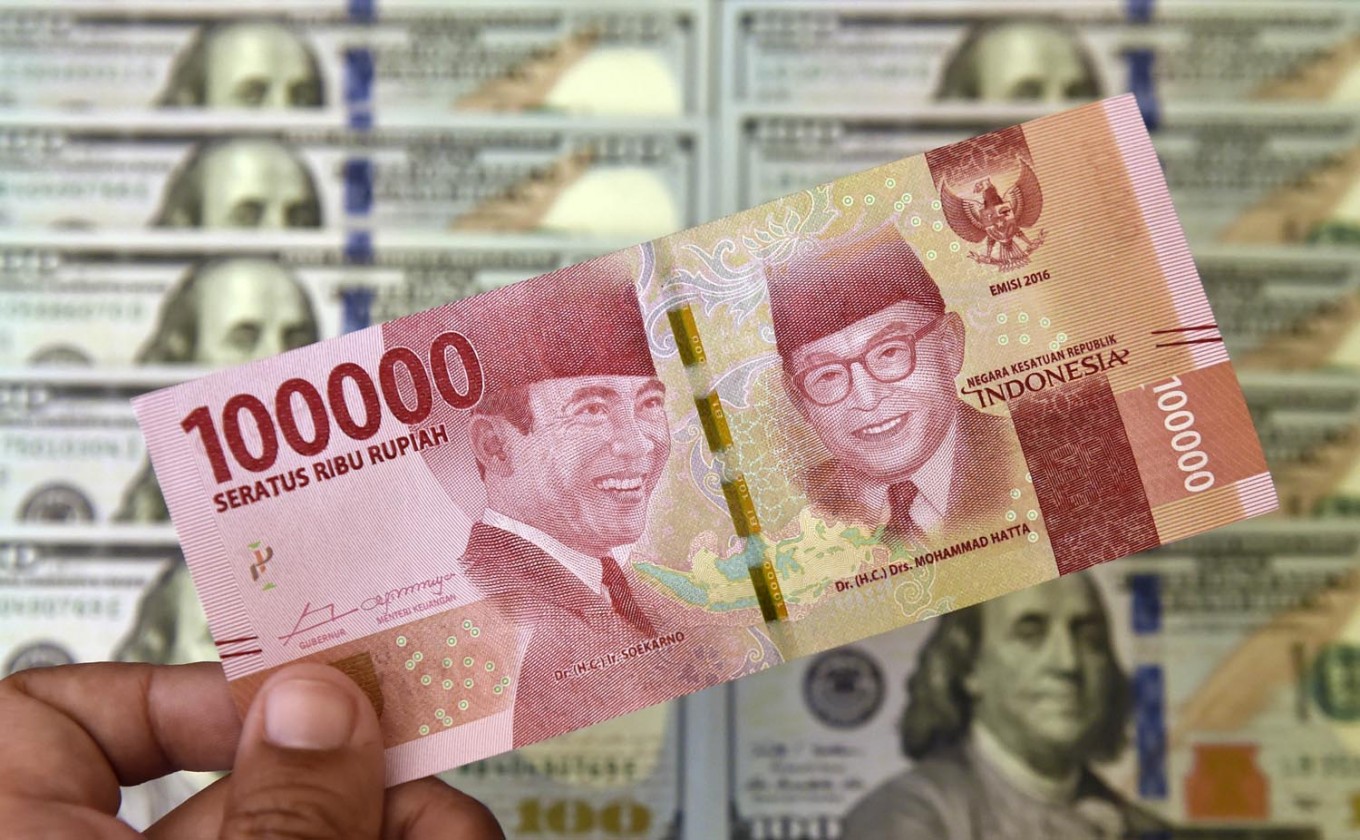Popular Reads
Top Results
Can't find what you're looking for?
View all search resultsPopular Reads
Top Results
Can't find what you're looking for?
View all search results‘This is not a normal time’: BI to break barriers in COVID-19 battle
“We vow to return to prudent monetary management if the market is ready to fully absorb the debt papers," Bank Indonesia (BI) governor Perry Warjiyo said.
Change text size
Gift Premium Articles
to Anyone
B
ank Indonesia (BI) has promised to keep consumer prices in check despite a new regulation that allows the central bank to buy bonds directly from the government, a move that will likely increase the money supply.
BI governor Perry Warjiyo said inflation was expected to remain low this year, between 2 and 4 percent as targeted, even though a new government regulation in lieu of law, (Perppu) No. 1/2020, could bring more money into circulation. The consumer price index had grown 2.96 percent year-on-year in March, the latest data available.
“Prudent monetary guidance will not allow the central bank to finance a budget deficit directly because this leads to money creation and higher inflation, but this is not a normal time,” Perry said at a teleconferenced briefing. “We vow to return to prudent monetary management if the market is ready to fully absorb the debt papers."
Perppu No. 1/2020 allows BI to buy government bonds directly at auction. The auction will also involve state-owned firms, banks, private corporations and retail investors. The law breaks a long-standing rule, established in the 1999 BI Law, that the central bank can buy tradable government bonds only in the secondary market.
“BI will only act if the market cannot fully absorb the papers,” said Perry.
Read also: Explainer: BI to throw lifeline to Indonesia’s economy to fight COVID-19
The new rule comes as Indonesia announces Rp 405.1 trillion (US$24.6 billion) in additional state spending for COVID-19 relief, with the budget deficit expected to widen to 5.07 percent of gross domestic product (GDP). The extra spending is to be used for healthcare, the social safety net and business rescue programs as Indonesia addresses the public health emergency.
“The strategy where the government’s budget deficit is financed by the central bank is similar to the ‘quantitative easing’ already implemented in the the US, Europe and – most recently – Australia,” Bahana Sekuritas economist Satria Sambijantoro said.
However, unlike the US dollar, the euro and the Australian dollar, the rupiah is a rarely used currency in international trade and finance. Therefore, any change in the money supply will eventually be absorbed by the domestic economy, Satria explained.
“The monetary experiment’s high risk-reward nature means BI could be remembered as either a legendary hero acclaimed in economics textbooks or a villain who caused hyperinflation and steep currency depreciation,” he added.
Read also: Indonesia’s COVID-19 stimulus playbook explained
BI has sought to stabilize the rupiah through "triple market intervention", focusing on the foreign exchange spot market, the domestic non-deliverable forward (DNDF) market and secondary bond markets. The central bank has used Rp 172.5 trillion to buy government bonds so far this year as capital outflows totaled Rp 145.1 trillion in the first three months of the year.
BI pledged to stabilize the rupiah at Rp 15,000 per US dollar by the end of the year, although the government has, under its worst-case scenario, said the rupiah could hover between Rp 17,500 and Rp 20,000 if the COVID-19 pandemic lingers.
The rupiah, already the worst performing currency in Asia this year, would be at the weakest point in its history if the worst-case scenario played out. The rupiah is currently trading at about Rp 16,525 against the US dollar, Bloomberg data shows, having depreciated about 15 percent since the beginning of the year.
“This is only a what-if scenario and not a projection,” Perry said about the worst-case scenario, adding that the central bank saw room for improvement in the rupiah thanks to coordinated efforts among financial authorities.
BI also vowed to maintain an inflation level within the central bank’s target this year as a result of low consumer demand, sufficient food and beverage supplies and low currency impact on inflation, Perry said.
Read also: Inflation stable in March but COVID-19 risks loom over outlook: Economists
However, the government’s worst-case exercise projects inflation could reach 5.1 percent if the COVID-19 pandemic lingers and the economy contracts, according to material from the Finance Ministry. The baseline scenario is 3.9 percent annual inflation and 2.3 percent economic growth this year.
Bank Mandiri estimated that inflation in 2020 would reach 3.25 percent, chief economist Andry Asmoro said.
“This relatively higher inflation forecast, compared to the 2019 realization of 2.72 percent, is caused by a higher risk of volatile inflation, particularly food inflation due to the COVID-19 outbreak limiting the food supply,” Andry said.
Esther Samboh contributed to this story.










